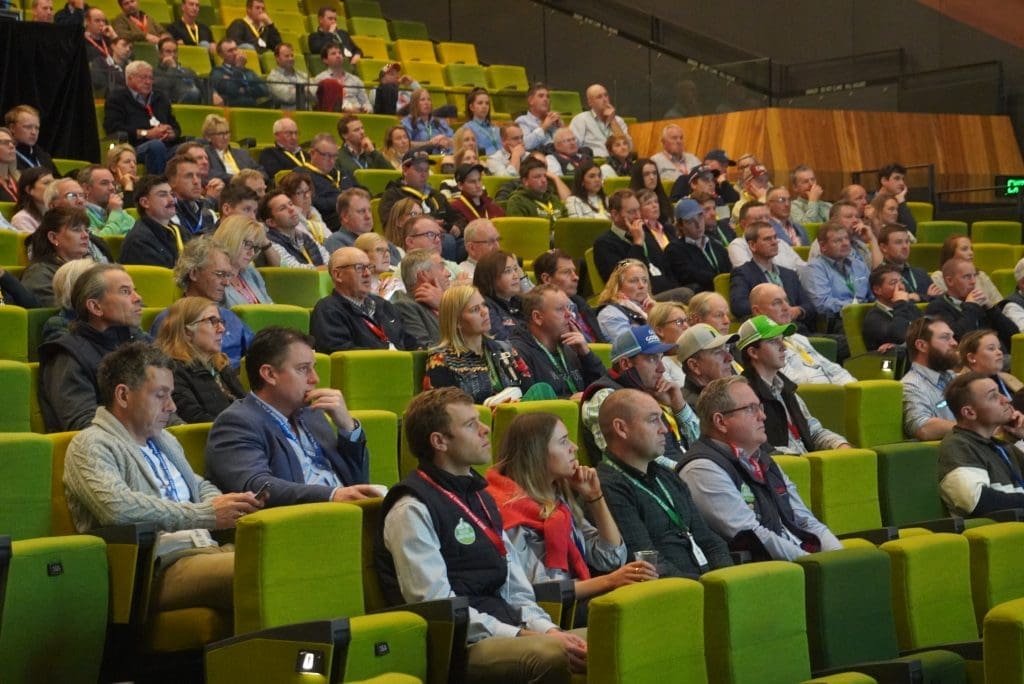
Part of the 550-strong JBS Great Southern program gathering in Melbourne’s convention Centre conference this morning
JBS Australia’s Great Southern branded lamb and beef program – the world’s largest farm-assured grassfed premium branded meat protein venture – marked ten years of success with a major industry event in Melbourne on Friday.
More than 550 livestock suppliers, food service and retail customers and other stakeholders gathered for the Great Southern event at the Melbourne Convention Centre, culminating with a glittering supplier awards dinner and festivities at Melbourne Showgrounds.
The lamb and beef suppliers represented Great Southern’s entire supplier catchment area from across Victoria, southern NSW, eastern parts of South Australia and Tasmania, as far as King Island.
The dialogue around delivering a superb, consistent eating experience was very much about how each link in the supply chain plays a vital role in the performance of the ultimate piece of beef or lamb on the diner’s plate.
JBS launched its Great Southern farm-assured grassfed lamb program in 2011, joined two years later by Great Southern Beef. Both have been underpinned by the MSA tenderness guarantee scheme since day one. A decade on, the programs continue to grow in scale, on average now accounting for 3500-4000 beef carcases and 12,000 farm-assured lambs each week.
Over time, new segments like Pinnacle beef (minimum marbling score 2) and Little Joe (a super-premium grassfed beef product with minimum marbling score 4) have been added to the Great Southern umbrella brand.
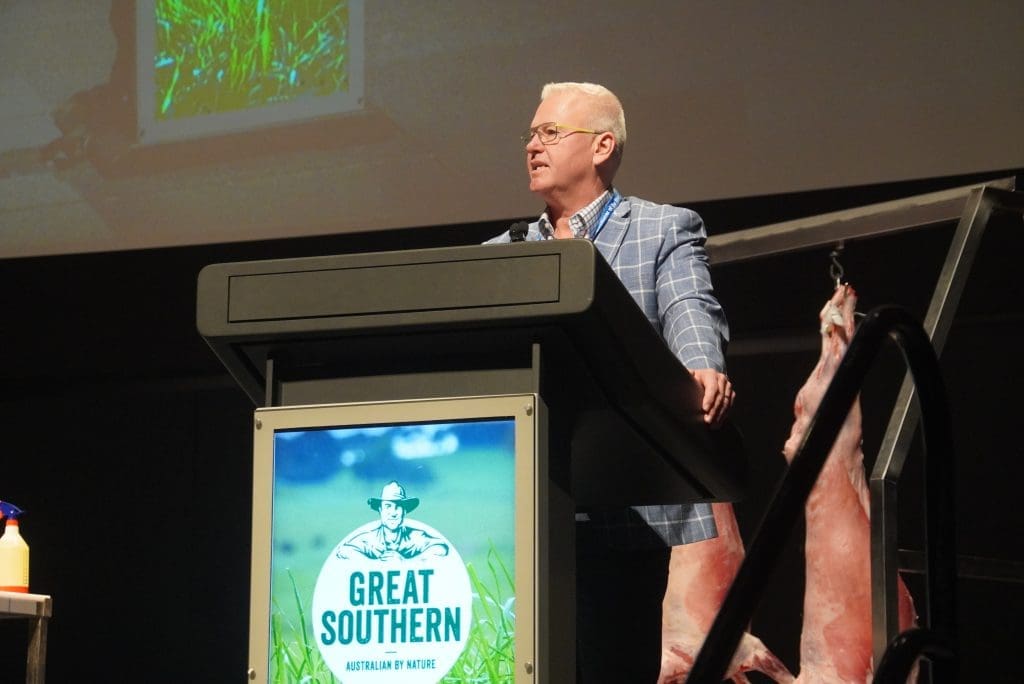
JBS Southern COO, Sam McConnell
JBS Southern chief operating officer Sam McConnell said the original vision of the program was to identify and engage with the best producers, set high standards for quality, consistency and product integrity, and not deviate from that.
“We’ve remained true to what we said we were going to do a decade ago, and continue to pay premiums to producers, and over time, more and more suppliers have joined the program,” he said.
“We continue to see performance improvements, in both quality and consistency, driven by sustained investment in genetics, nutrition and pasture programs and general herd management to overcome seasonal highs and lows, helping smooth-out production flows to deliver high-performing product year-round.”
Education was a critical part of that process, Mr McConnell said.
JBS Southern’s livestock team works with groups of suppliers across the entire supply region towards ongoing improvement in areas like pasture management, nutrition, animal welfare and genetics.
There was a large cohort of beef and lamb suppliers who joined the Great Southern program a decade ago who continued to supply cattle and lambs to the programs, Mr McConnell said.
Future directions?
Asked where an enormous, highly-successful program like Great Southern goes from here, Mr McConnell highlighted two areas: market access, and potential claims around sustainability.
“Market access is a big one for us. Great Southern is positioned well for future opportunities in regions like the European Union, where free trade agreement discussions are progressing, and the recently completed UK FTA. The quality of the beef, the fact it is grassfed and farm assured and HGP-free, means it continues to grow in a lot of premium export markets. International chefs are loving the product for its quality and consistency,” he said.
Asked about potential future carbon or methane brand claims, Mr McConnell said JBS Southern was doing a lot of work in the space.
“It’s much more challenging, when talking about brand programs of this size and scale. We’re making sure we get it right, before we come out with anything, but we’ve been doing a lot of behind the scenes work for the past two years. We don’t want any half-baked claims in our brand programs.”
In terms of continuity of supply for Great Southern, Mr McConnell said JBS’s network of processing plants played a critical part in that. “Geographic spread plays a key part. JBS Scone is located in the centre of a great livestock area in the NSW Hunter Valley; Brooklyn is well positioned for lamb and beef supply in Victoria, and Longford in Tasmania fills important seasonal roles, as does Bordertown for lamb.”
Utilising every piece of the carcase
Mr McConnell said carcase utilisation was a key part of the success of the Great Southern program.
“There is no use in selling only rumps and loin cuts – we have to be able to effectively sell all parts of the carcase, because of the production cost involved. That’s taken time to build, but even items like trim, which constitutes 25pc of the meat from the carcase, needs to be sold for the best possible price,” he said.
Currently around 70pc of the beef and lamb from each Great Southern carcase is exported. Loin cuts are in high demand within Australia, especially from within the food service sector where chefs respond to the quality and consistency of the product.
“We’re starting to get a lot of traction also in markets like the Middle East, Hong Kong and Singapore where high-end hotels are coming back after the COVID setback.
In another conference session held this morning, a group of celebrity chefs including Adrian Richardson joined MLA executive chef Sam Burke, emphasising how they use alternate cuts in innovative ways, and using each part of the carcase to best effect.
“Hero cuts like rib eyes, tomahawks and bisteccas are important on any good restaurant menu, but so to are non-prime cuts like tri-tips, point-end brisket, flank, bavette, oyster blade, shin and cheek meat. There are new technologies like like combi-ovens,and trends like Texas slow cook BBQ, which can help maximise yield, and deliver tender, tasty yet price competitive menu options,” the group said.
Here’s some of the stakeholders in attendance at Friday’s Melbourne gathering:
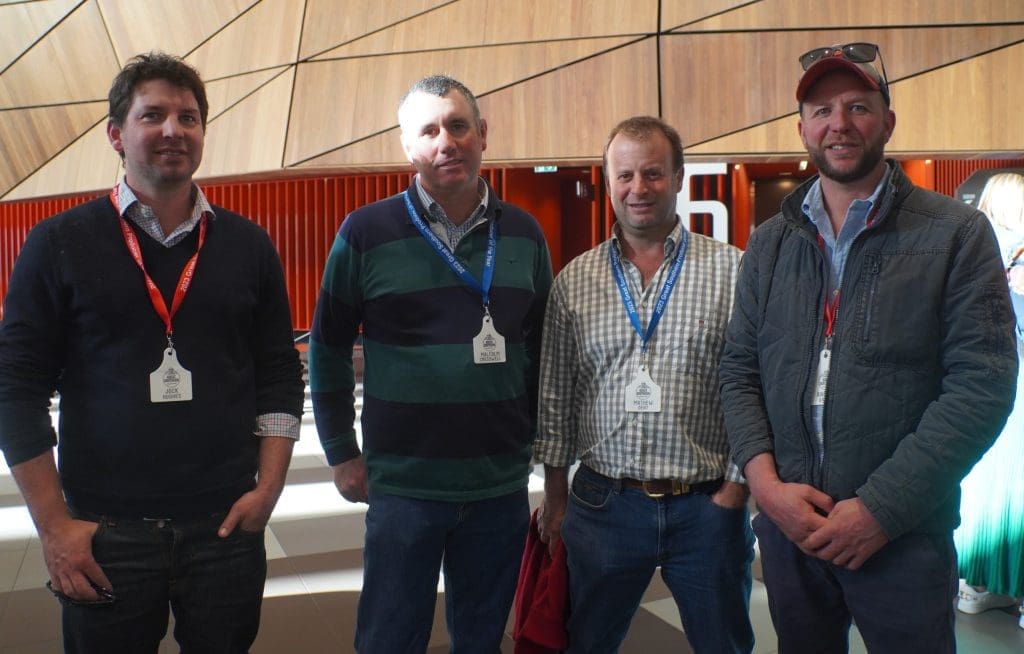
Part of the large Tasmanian supplier contingent attending the Great Southern gathering included from left, Jock Hughes, Malcolm Cresswell, Mathew Dent and Andrew Archer
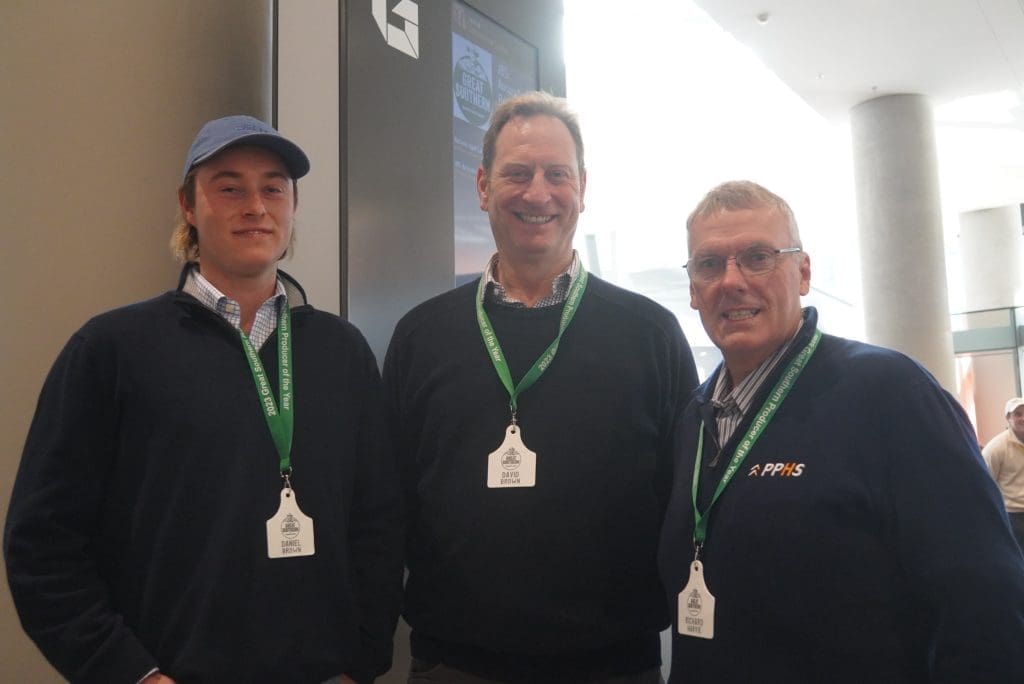
Daniel Brown and his father David, Great Southern suppliers from Padthaway, South Australia, with Richard Harvie, PPHS South Australia
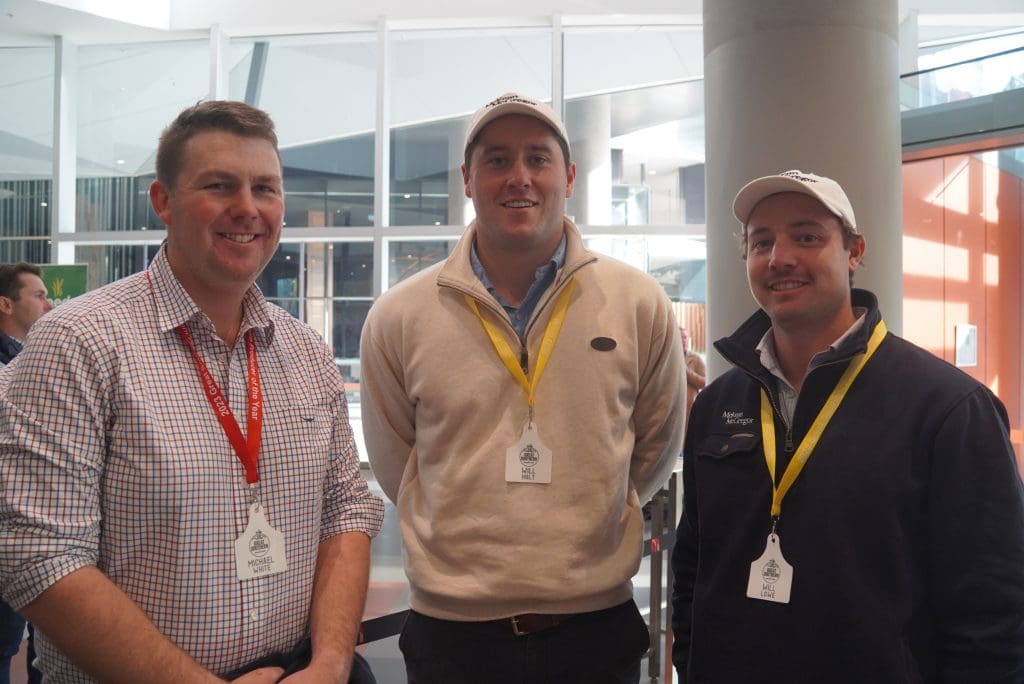
Michael White from TB White, Ballarat, with Will Holt and Will Lowe, McKean McGregor, Bendigo
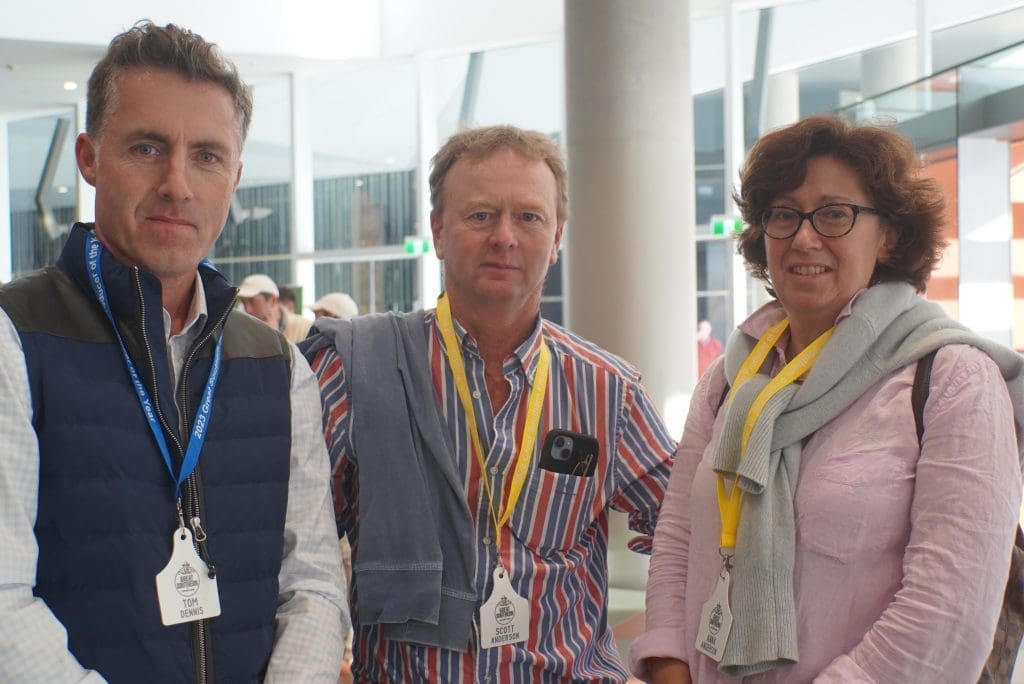
Tom Dennis from Elders Naracoorte with Flinders Island JBS Great Southern livestock suppliers Anna and Scott Anderson.
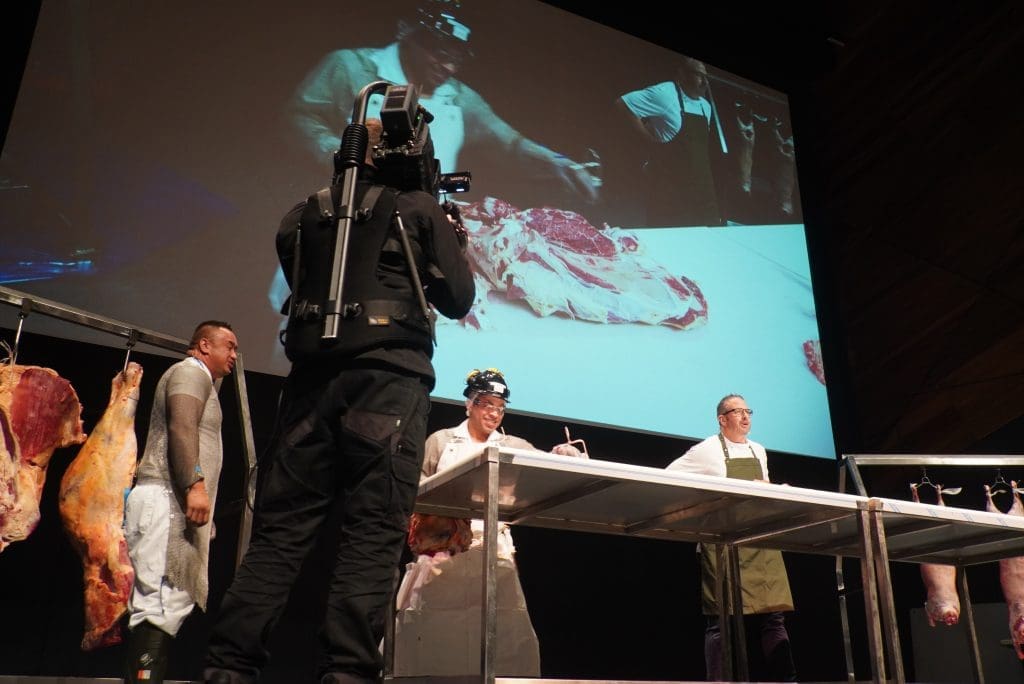
JBS Scone plant manager James Turner, MLA executive chef Sam Burke and a Brazilian born JBS boner discuss forequarter cuts utilisation during a session at this morning’s Great Southern gathering, broadcast live to the audience.

HAVE YOUR SAY